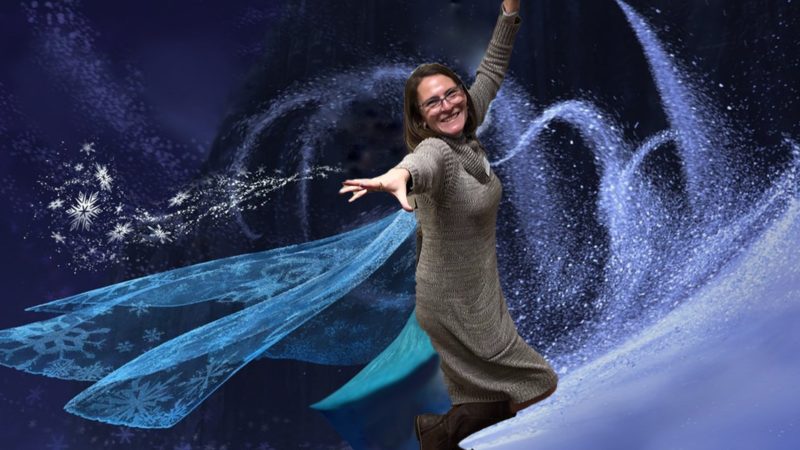I admit I can be a grudge holder. Holding grudges requires so much mental and physical energy, and yet I just can’t let it go sometimes. My memory tends to hold on to incidents and moments like glue, so it becomes very difficult to forget something that has happened in the past, especially when it upsets me.

If there’s one thing that the countless viewings of the animated Disney movie Frozen have taught me, it’s to let it go. If you’re not blessed with the same intimate understanding of the film, the song “Let It Go” is the Oscar Award-winning turning point musical number, when Queen Elsa leaves home, now free of the secret that she kept hidden away for so long.
The song isn’t strictly about letting go of a grudge. It’s more about letting go of fear. But the lyrics still speak to me when I think about unburdening myself of whatever is weighing me down, whether it’s anger, fear, or insecurity. The lyrics also remind me of our Torah portion this week, Parshat Vayishlach. I recommend that you find a clip of the movie to listen to as you follow along:
Let it go, let it go
Can’t hold it back anymore
Let it go, let it go
Turn away and slam the door
I don’t care what they’re going to say
Let the storm rage on
The cold never bothered me anywayIt’s funny how some distance makes everything seem small
And the fears that once controlled me can’t get to me at all
It’s time to see what I can do
To test the limits and break through
No right, no wrong, no rules for me
I’m free
This week’s parshah, Vayishlach, again shows us interaction between Jacob and his brother Esau. The last time these two were together, Esau didn’t seem too attached to his birthright blessing until it had been given to Jacob, and Jacob didn’t care much about his brother’s right to the blessing until his brother threatened to kill him. Now, twenty years or so later, we find the brothers on a path to meet again. Both are now married and fathers of large clans, and both have large flocks with them.
What I find most remarkable about this moment of reconciliation is that apparently both Jacob and Esau have decided to let bygones be bygones. They don’t bring up their rocky past or ask for any sort of closure. They are simply able to embrace one another as siblings, and let it go.
To truly “let it go,” as in Jacob and Esau’s example, is not easy, but not impossible. It takes acceptance, it takes love, and it takes two people.



